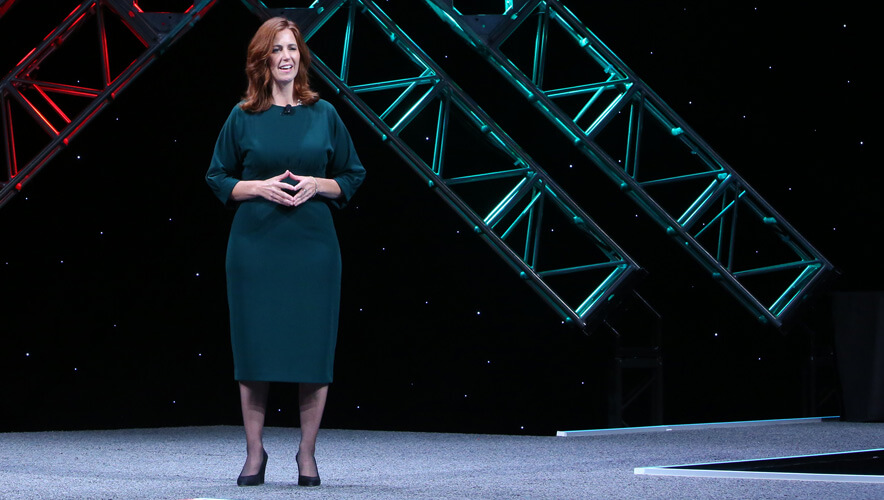Christina Duffey: Serving the New Generation
ASIS President Christina Duffey, CPP, shares her thoughts on building a security career, connecting through ASIS, and investing in the future of the profession.
How did your career begin? What drew you to the security industry?
A. The journey began shortly after I left the Canadian Armed Forces, a Reserve Communication Squadron. At first, I wasn’t sure whether a transitional job as a security officer would lead to the next big thing—a career, in who-knows-what, because security really was not considered a profession yet. However, it was not long before I sensed that there were opportunities well beyond my security officer role. Back then, technology was just starting to slowly creep into the physical security realm. I knew that gaining experience in roles that utilized “the computer” would be key to building valuable skills for the future. But the ’90s were in no way a straight career path and stacked with plenty of obstacles, gender being one of them. Over time, as the opportunities got bigger, so did the risk of failing.
What were some key lessons you learned early in your career?
A. The blueprints laid out by my supervisors were a great first step, but soon true identities emerged. It was not long before I realized that increasing vocational knowledge and obtaining industry certifications was critical, but watching supervisors and mentors was where the real lessons were learned. I studied each leader’s history, who they were, how they got there, and the impact they were making on people, programs, and the community. By doing this, I learned both the good and the bad; watched and learned from the risks taken and how to recover; and discerned how arrogance and a lack of values can erode integrity and a personal brand.
What do you see as the current opportunities for security and those who serve in the industry?
A. It is not about living in the past; the real opportunity is for leaders to leverage their experience and insights to encourage the future. For example, we must convey the importance of picking mentors and leaders. They challenge but educate with kindness to inspire through the difficult times. Mentors who are also direct supervisors have a vested interest in individual success because it helps their success. But this relationship may be limited to the immediate work environment, which underscores the importance of volunteering and serving the security industry. Expanding your industry network can provide big dividends and is well worth the investment and sacrifice.
How can ASIS be an asset in the security industry?
A. Through industry networking and relationships, you will expand your connection to expertise, resources, and opportunities. ASIS International provides an excellent path to engage with leaders outside the traditional work circle to build technical knowledge. Expanding your network to include leaders who are willing to pass along knowledge with no personal gain will elevate you to the next level. At some point, it shifts from listening to the stories to telling your own story. This is when serving the new generation truly happens and it becomes about selflessly helping others gain wisdom and resiliency.
How can ASIS serve emerging security professionals?
A. We hear a lot today about the next generation, but what does that mean, really? Are we talking about simply staffing positions, or are we speaking of ushering in the next generation of leaders for our security industry? As we begin 2019, it is important that today’s security leaders clearly communicate this intention. With experience comes insight and knowing that education, development, and training will only carry our expertise to a point. Failure starts when we neglect to weave ethics, wisdom, and kindness into the lessons we pass on to others. In order to truly serve a new generation, we must have a mentality that something better than ourselves is the reward.
What tools must the industry adopt to meet emerging security professionals where they are?
A. Serving the new generation is not an easy task. Solely pulling from our past and the trenches we grew up in does not provide the necessary road map for emerging leaders. The new generation is smart, educated, healthy, and technologically strong. They want to get there faster and better. “Old school” approaches should not hold them back, but rather equip them with experience that embraces their new ideas and ways.
It is not so much what you teach, but how you teach it. Passing wisdom that is meaningful, inspirational, ensures vocational skill development, and educates for the unknowns is critical. But most importantly, the best mentors lead by example. Go beyond sharing wisdom, model the traits and behaviors emerging leaders should embrace. Our duty is to carry the new generation by helping to maintain a balance between technology—with its speed and immediacy—and natural unfolding of knowledge and wisdom gained over time.
